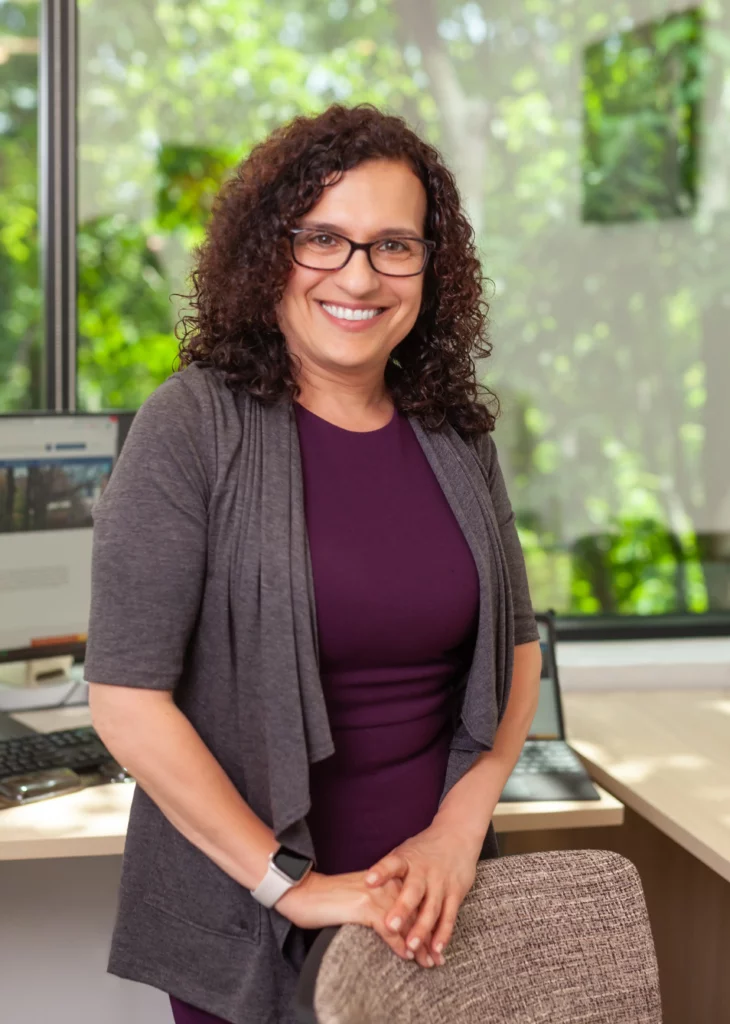Institutional reports serve as vehicles to promote institutional improvement. They also support the Commission in its role of assuring the public of the quality of the institution and higher education as an enterprise. Reports to the Commission are confidential. The Commission encourages institutions to make them widely available.
The Commission provides a variety of resources to member institutions, including an annual Assessment Forum, training workshops for institutions and peer evaluators, as well as periodic regional meetings on topics related to accreditation. In addition, Commission staff are available to answer questions, make campus presentations, or provide guidance to member institutions considering substantive changes.
In keeping with its Policy on the Periodic Review of Accredited Institutions, the Commission regularly schedules reviews of its member and candidate institutions. Accredited institutions undergo comprehensive evaluations at least every ten years. Newly accredited institutions are revisited within five years. Institutions are subject to a variety of other monitoring mechanisms, including an annual report and an interim report for all accredited institutions, as well as focused visits and progress reports as deemed necessary by the Commission.
The nature and timing of such reviews vary in accordance with the circumstances at a given institution. If an institution undergoes a substantive change or if at any time its educational effectiveness is seriously questioned, the Commission reserves the right to review that institution’s accreditation without regard to any previously indicated time pattern.
Institutions are asked to follow the Guidelines for formatting documents to be submitted to the New England Commission of Higher Education (NECHE) when preparing documents for Commission review. As noted in the Guidelines, the Commission requests an electronic copy (single, searchable pdf file) be submitted to the Commission via the NECHE Institution Portal.
Specific report-preparation guidelines and required forms for institutional reports are available through the menu on the left. Questions about report preparation may be directed to any member of the Commission staff.
Reports to the Commission are confidential. The Commission encourages institutions to make them widely available.

©2023 New England Commission of Higher Education. All Rights Reserved.
This site is protected by reCAPTCHA and the Google Privacy Policy and Terms of Service apply.
Site Created by Belfort Group.
The Commission requires institutions to undergo a comprehensive evaluation at least every ten years. The comprehensive evaluation process has three components:
Self-study is at the heart of accreditation. Both a product and a process, effective self-study serves accreditation’s dual purposes: quality assurance and institutional improvement. The self-study presents a concise picture of the institution as a dynamic entity with a sense of its history, an understanding of its present, and a vision of its future. By clearly identifying strengths and challenges, the institution demonstrates its ability to use analysis for improvement.
Commission staff provide assistance to institutions preparing for their comprehensive evaluations through an annual fall workshop and individual campus visits. Institutions are strongly encouraged to submit a rough draft of the self-study for review by Commission staff. Drafts can be submitted to staff via the NECHE Institution Portal.
Self-studies are to be a single-searchable PDF file. For further guidance, the Self-Study Guide, “Supportive Materials (68) for the Team Workroom,” and all required forms are available above.
Six weeks before the team visit, the institution submits its self-study (including all items above) as a single, searchable PDF file to the Commission office via the NECHE Institution Portal. If team members request a paper copy, the institution is asked to send that directly to them.
The on-site evaluation by a group of faculty and administrators provides the institution and the Commission with a valuable external perspective. Team members are selected because of their experience at an institution comparable to the one being evaluated. They are trained by Commission staff to validate the self-study in light of the institution’s mission. The Evaluation Manual may be a helpful resource to understand the approach and perspective of the visiting team.
After the visit, the team chair, using material submitted by the team members, will produce a draft report, first reviewed by the team and the Commission staff. The staff review is designed to help ensure that the report can stand on its own and that important areas are sufficiently addressed. Following any changes made in that initial review, the chair sends the draft report to the institution’s president for purposes of making sure the factual matters in the report are correct. Having made any appropriate changes based on that review, the chair sends the final version of the team report to the institution, which sends copies to the team members and to the Commission.
The institution’s president is asked to respond to the team report. Responses may indicate concurrence with the team’s findings, may provide a differing interpretive perspective on factual matters or may provide an update on how the institution has responded to the findings of the team.
Normally the Commission considers comprehensive evaluations the semester following the visit. The institution’s president (CEO) and team chair are invited to meet with the Commission for an interactive session to review the comprehensive evaluation. Included in the review are the self-study, team report, the confidential recommendation of the team chair, the institution’s response, and the history of Commission action with respect to the institution. In addition, in keeping with federal regulations, the Commission seeks and considers Public Comment regarding each evaluated institution.
The Range and Meaning of Commission Actions Affecting Institutional Status outlines the actions the Commission may take with regard to an institution’s accreditation status. In addition, the Commission specifies areas where an institution should endeavor to improve its effectiveness. Official written notification of the Commission decision is provided to the institution shortly after the Commission meeting.
If you have any questions about these reports or the process for submission, please reach out at any time.

Interim Reports ask institutions to reflect on progress since the last comprehensive review and to project areas of focus for the next five years leading up to the next comprehensive review.
Policies and Procedures pertaining to Interim (Fifth-Year) Report :
Forms pertaining to Interim (Fifth-Year) Report :
Submission of Report:
Electronic copy: a single searchable pdf file of the Interim Report, including all forms and appendices, should be submitted via the NECHE Institution Portal.
If you have any questions about these reports or the process for submission, please reach out at any time.

The Commission may request an institutional progress report at any time in order to follow up on issues of particular concern. Institutions are asked to use the guidelines below in preparing these reports and to consult Commission staff with any questions.
Guidelines for Preparing Progress Reports
Institutions asked to focus on finance and enrollment should include the Finance & Enrollment (F&E) Data Forms.
If you have any questions about these reports or the process for submission, please reach out at any time.

The focused evaluation provides a means of monitoring specific developments or concerns within an institution between comprehensive evaluations. When the Commission requires a focused evaluation, the institution submits a report on specified areas, and a small team visits the institution to validate the information provided in the report, evaluate the areas of focus, and report its findings and its recommendations to the Commission. The Commission considers focused evaluations the semester following the visit. The institution’s president (CEO) and team chair are invited to meet with the Commission for an interactive session to review the focused evaluation. Included in the review are the institutional report, the team report and confidential recommendation, and the institution’s response to the team report.
To view procedures for the Focused Evaluation Visit, please click here.
Institutions asked to focus on finance and enrollment should include the Finance & Enrollment (F&E) Data Forms.
If you have any questions about these reports or the process for submission, please reach out at any time.

Educational institutions are constantly changing. Most changes, such as developing new majors or concentrations, changing personnel, and adding and dropping courses, fall within the nature and scope of the institution and do not affect its accredited status. Other changes, however, affect significantly the nature of the institution, its mission and objectives, its educational program, and the allocation of its resources. Such substantive changes initiated subsequent to the most recent evaluation are not automatically included in the institution’s accreditation.
The Commission supports and encourages innovation and experimentation; it also has the obligation to determine the effect of substantive changes on the validity of an institution’s accreditation. Each year the Commission considers several substantive change requests from institutions for matters including new branch campuses or additional instructional locations; enrolling students in degree programs overseas; offering certificates or degrees where 50% or more can be taken entirely on-line; and moving to the higher or lower degree. Offering a prison education program, either a privately funded program or a Pell-eligible program is also a substantive change. More information on the approval process for prison education programs can be found here.
If you are in doubt about whether a change your institution is making constitutes a substantive change, please contact either Laura M. Gambino (lgambino@neche.org or 781-425-7751) or Carol Anderson (canderson@neche.org or 781-425-7713). Review of a draft proposal by NECHE staff is highly recommended.
Please note that, per federal policy, in approving a substantive change, the Commission will specify an effective date that generally cannot be retroactive.
Submission of Substantive Change proposals:
Deadlines for submission of Substantive Change proposals to the Commission are as follows:
January 15, 2025 for consideration at the March 2025 meeting
March 14, 2025 for consideration at the April 2025 meeting
August 15, 2025 for consideration at the September 2025 meeting
October 15, 2025 for consideration at the November 2025 meeting
Institutions are requested to provide a cover page that includes the CEO’s signature on all Substantive Change proposals. Please use the NECHE Institution Portal to submit 1 single, searchable PDF file of the proposal to the Commission office by the deadlines specified above.
Resource Webinar: If the Time Comes: Closing a College Wisely
Please consult the Policy on Substantive Change for further assistance.
If you have any questions about these reports or the process for submission, please reach out at any time.


After an institution has received approval for a substantive change, the Commission will specify follow-up monitoring. For certain substantive changes – typically moving to the higher or lower degree; establishing an off-campus location; undertaking an expansion of scope; undergoing a change of ownership, including a merger –the follow-up will include a campus visit to assess initial implementation of the change. The visit is generally conducted by one or two evaluators and takes place over a period of one to two days.
Click here for the Procedures for the Substantive Change Evaluation Visit.
For information about how to submit a substantive change proposal, click here.
If you have any questions about these reports or the process for submission, please reach out at any time.

